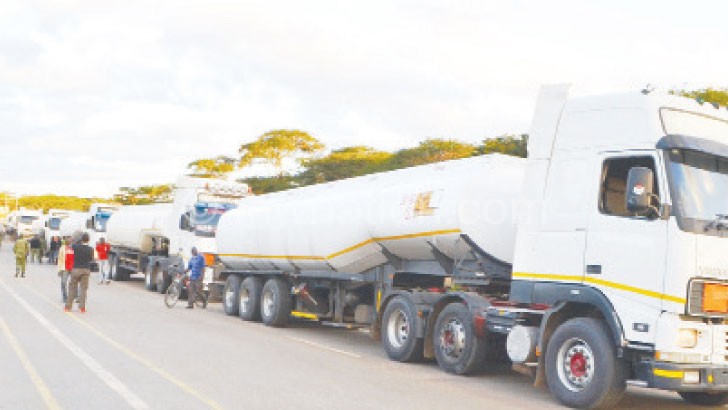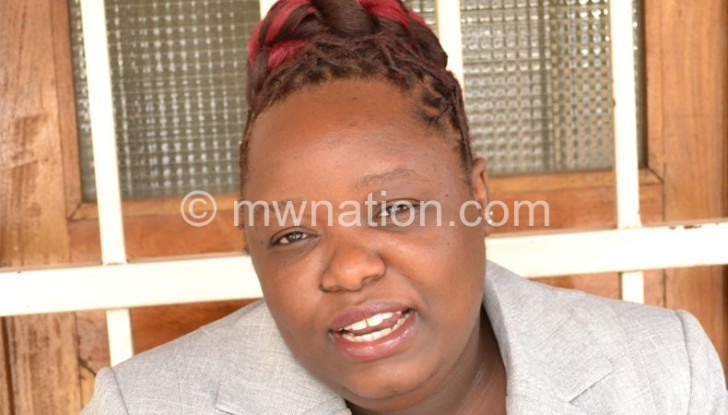Fuel hauliers take on Nocma
The High Court in Lilongwe has granted Fuel Tankers Operators Association (FTOA) an injunction restraining the National Oil Company of Malawi (Nocma) from using the Delivery Duty Unpaid (DDU) method of importing fuel into the country.
Through their lawyer Shepher Mumba, the association filed summons against the DDU method, describing the system as illegal and a contravention of regulations as suppliers of fuel are used to transport the commodity from the ports and deliver into Malawi.

In global commerce, DDU method of importing refers to a system in which the seller or supplier assumes all the risks for delivery of the product from external depots at the ports to various internal depots in the country. In this case, the local importer only takes charge of the products after it is delivered on site at local depots in the country.
According to court summons The Nation has seen, fuel tankers operators argue that the use of DDU method is a contravention of the regulations as suppliers of fuel are used to transport fuel from ports and deliver into Malawi; hence, contravening other public interest including charging of costs in United States dollars which, they argue, drains the country’s foreign exchange reserves and is susceptible to abuse due Io lack of transparency.
Regulations governing fuel importation into the country provide for the use of ex-tank method (as opposed to DDU) whereby the importer takes ownership of the product destined for Malawi and are responsible for in-transit risks such as theft, accidents and contamination up to the internal receiving depots of oil marketing companies.

The protracted wrangle between Nocma and the fuel importers comes barely months after transporters also protested a November 2020 resolution by the Parliamentary Committee on Natural Resources and Climate Change to give Nocma a lion’s share of 90 percent and Petroleum Importers Limited (PIL) a paltry 10 percent instead of the current 50-50 deal.
The local hauliers allege that while PIL prefers local transporters in fuel haulage contracts, Nocma gives much of the business to foreign transporters.
According to court injunction dated April 26, 2021 signed by judge Charlotte Malonda, the association prayed for a declaration that the DDU method of importing oil is illegal; an order of injunction restraining the defendant (Nocma) from using the DDU method of importing oil and damages for loss of business suffered by members of the association “because of the defendants use of the DDU method of importing oil into the country and costs of this action”.
Reads the injunction in part: “The claimant [FTOA] deposed that they tried to engage the defendant [Nocma]to stop using the DDU method. The defendant justified the use of the DDU method as a policy guided by the shareholders decision including the fact that even with the use of DDU, the defendant negotiated with their suppliers to use Malawian tankers for transport from the ports in Beira (Mozambique) and Tanzania. Hence, the defendant proceeded to advertise through inviting bids from suppliers using the same DDU method.”
Nocma is a private limited liability company and is a national strategic fuel reserve management company with 99 percent shareholding by the Malawi Government and one percent shareholding by Secretary to Treasury. Its core business is importation of fuel into the country.
However, Nocma, through its sworn statement by its director of operations Rueben Micklas, opposed FTOA’s application for an injunction, claiming that some of the association’s members have been benefiting from the DDU as Nocma was giving business to FTOA members.
He argued that the application for an injunction was based on lack of understanding of the local regulatory framework as well as international commercial terms that govern fuel importation.
Argues Micklas: “There is no law or rule in Malawi which prescribes ex-tank method of importing fuel as over DDU method.”
But making her ruling, Malonda said: “The balance of convenience lies in favour of the claimant [FTOA]. I am, therefore, of the view that the injunction should be granted restraining the defendant [Nocma] from using the DDU importation method. This is just and fair as they
have demonstrated that their cause of action has substance and reality.”
While ordering the two parties to proceed mediation within 30 days, Malonda also observed that there is need for the law to be settled on the legality of the use of the DDU method of fuel importation particularly by Nocma, “considering their market position and that fuel importation must ultimately come with benefits to the consumer”.
In an interview yesterday, FTOA chairperson Golden Luhanga described the granting of the injunction as a “huge milestone,” saying the association has been battling to have DDU abolished for the past three years.
He said: “This issue has been going on for so long. We even met ministers of Trade, Labour, Transport and Energy at Capital City Motel and the resolution from the meeting was to abolish DDU because we are wasting our foreign exchange reserves in buying fuel from outside as well as paying foreign transporters who are favoured by this DDU method.
“In fact, if government is talking about creating one million jobs, it must do away with this DDU and allow e-tank system to take centre-stage as it is fair and also in line with our laws.”
Justifying the need to give local hauliers business, Luhanga said the local fuel haulage industry has a combined capacity of 1 280 fuel tankers and the country can only consume 30 tankers per day.
An energy expert, who spoke on condition of anonymity, in an interview yesterday said the ex-tank procurement system is beneficial in many aspects.
Said the expert: “The system has a myriad of benefits and they include full utilisation of locally registered transporters who are usually sidestepped in the DDU method.”
On January 15, Mera acting chief executive officer (CEO) Ishmael Chioko wrote Nocma CEO stating that the Mera board, which had met on January 7 2021 and January 14 2021, had resolved that all the [fuel] volumes for Nocma should be procured under ex-tank system, given the optimal landed costs, its lower finance costs, its foreign currency requirements and the supporting legislation.
Both Chioko and Minister of Energy Newton Kambala had not responded to our questionnaire as we went to press yesterday. Efforts to talk to Nocma acting CEO Hellen Buluma also proved futile as she did not pick our calls.
But Mera spokesperson Fitina Khonje earlier observed that it was important for Nocma to open up to the public about the tender process and that licensees should be transparent about their operations. Fuel importation in Malawi is regulated by regulations made under the Liquid Fuels and Gas Production Act.





